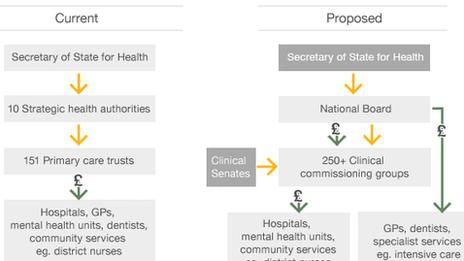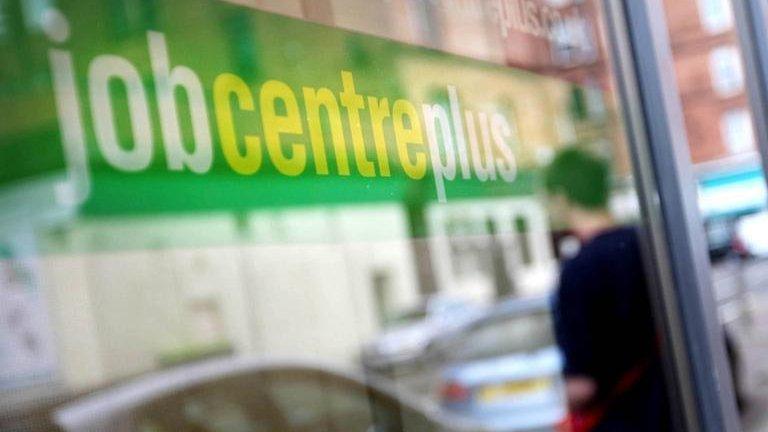David Cameron: Public sector reform cannot be delayed
- Published
Mr Cameron says he wants public service modernisation to be a "legacy" of his government
David Cameron has said Britain should not put off wide-ranging public sector reforms, amid criticism about the pace of NHS changes in England.
The PM said he wanted to "do right" by public sector workers but arguments he should stick with the status quo were a "complete fiction".
Critics who said the plans amounted to privatisation needed to "grow up".
The Royal College of GPs, the British Medical Association (BMA) and trade unions say the upheaval is unnecessary.
Ministers will publish a health bill this week that will pave the way for GP consortiums to take over management of the NHS from primary care trusts in England.
But the Royal College of GPs and the BMA say the same results could have been achieved by a small change in the current structure.
And the heads of six health unions, including the BMA, warned in the Times of their "extreme concerns" about greater commercial competition between the NHS and private companies.
In his speech, external, Mr Cameron said he wanted complete modernisation of Britain's public services.
He sought to reassure public sector workers, saying his aim was to "champion excellence" and reduce inequalities in health and education between rich and poor. He reiterated that, after the cuts, spending would be at the same level as it was in 2006.
In his speech to the Royal Society of Arts in London he said "pretending that there is some easy option, of sticking with the status quo and hoping that a little bit of extra money will smooth over the challenges, is a complete fiction".
Arguing that "we can't afford not to modernise" Mr Cameron added: "Every year we delay, every year without improving our schools is another year of children let down, another year our health outcomes lag behind the rest of Europe, another year that trust and confidence in law and order erodes."
He added: "I have to say to people: if not now, then when? We should not put this off any longer."
He said he had read Tony Blair's memoirs over the summer and argued that the former Labour PM had found that delaying reform created "institutional inertia" against change.
"I believe this coalition has a once-in-a-lifetime opportunity to transform our public services."
In a question and answer session after the speech, he was asked how he could ensure a drive for competition did not just mean privatisation, he said: "The idea that all these changes amount to privatisation is simply not true... I think we've just got to grow up over this debate and recognise what matters to the patient, what matters to the public is, 'Is there a good, free national health service, free to me at the point of use that's giving me the operation I need, the care I need, the support I need?'"
Earlier he told the BBC there was a "lot of enthusiasm for what we are doing" - with 140 GP groups coming forward to take on the new commissioning powers ahead of their introduction across England in 2013. Mr Cameron also said the changes would make "net savings" within two years.
In their coalition agreement, the Conservatives and Lib Dems said: "We will stop the top-down reorganisations of the NHS that have got in the way of patient care."
For Labour, shadow health secretary John Healey said, after the coalition agreement's pledge to stop "top-down reorganisations of the NHS", these plans were "another big broken promise from David Cameron".
He added: "David Cameron also seems to see the NHS as second rate when everybody else has seen big improvements by Labour in recent years and public satisfaction is now at an all-time high. This is an insult to millions of NHS staff."
The criticism came after Mr Cameron said in his BBC Radio 4 Today programme interview: "I don't think we should put up with a second rate - with coming second best. We should aim to be the best."
Asked about it following the speech, Mr Cameron said he had meant to say the NHS should not be "second best" but sometimes got a "word out of place".
Unison general secretary Dave Prentis accused him of "cutting away at the heart of society".
He said: "The NHS is not safe in Tory hands. Lansley's proposals are unnecessary, untried and will cost the taxpayer dear. They threaten the very founding principles of the NHS."
Chris Keates, General Secretary of the NASUWT, the largest teachers' union, said: "If the prime minister thinks he can silence millions of public service workers by brushing off their significant concerns as predictable and insignificant, he should think again.
"A government genuinely concerned to ensure its reforms are workable would be wise to listen to those who raise objections."
- Published17 January 2011
- Published1 March 2013

- Published24 December 2010
- Published15 February 2015
